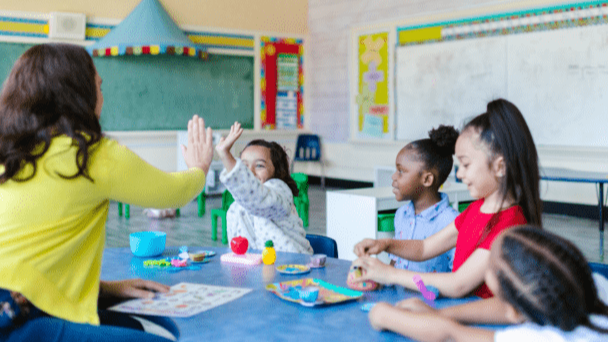
Deep Democracy: How to Manage Conflicts Building a Strong Classroom Culture
CLA.1.DEE
Formation créée le 16/12/2022. Dernière mise à jour le 18/06/2024.
Version du programme : 1
Programme de la formation Version PDF
Rapidly changing life conditions and the polarization of society are raising the complexity of today’s life, from childhood to adulthood, and bringing more chaos and conflict to it. Students also suffer from increased complexity and conflictual situations, and bring their suffering to school. As teachers, if we want to be able to manage the classroom and help our students, we need to master effective methods to give voice to the different needs present within each of us, as well as within the classroom, to moderate their contrast, and finally go through them to resolve their conflict. The course will propose the Lewis Method to Deep Democracy as an effective technique to moderate and resolve conflict, thereby helping students understand each other, have a respectful attitude, show empathy towards others, and build positive relations. While conflict is often perceived as a negative process, the Lewis Method proposes to mine the wisdom that lies below it. The real issue is not about how to avoid conflict, but actually about how to manage it properly. In order to do that, the method emphasizes the importance of recognizing the need to go into conflict before resolving it as a necessary step. Properly managing conflict requires creating appropriate safety rules. The first rule of the Method acknowledges that everyone has their own unique lens on the world. Thus, everyone is right but no one has a monopoly on the truth! The second rule encourages participants to express all their frustration in the conflict, while the third encourages them to look for the “gift” of the conflict, that is, a minimal truth in what the other said that contains a possibility for personal and relational growth. As a participant in the course, you will learn the Lewis Method to Deep Democracy to manage conflicts with the classroom, as well as all kinds of groups, building and strengthening the classroom culture, creating a peaceful learning environment where every individual is deeply heard and feels truly free to express his/her feelings on the basis of mutual respect. Throughout the course, you will also take part in a series of practical activities that can be implemented in different parts of your lessons. For instance, there will be effective icebreakers, team-building exercises, classroom management tools, and group-dynamic games. By the end of this course, you will be more confident in intervening in conflicts and manipulating them to unleash the potential in the classrooms. Furthermore, you will be able to easily deal with the resistance to decision-making by ensuring non-violent communication.
Objectifs de la formation
- Realize tensions remaining unspoken and take precautions;
- Appreciate the wisdom of the minority, and embrace diversity;
- Understand the principles of Deep Democracy;
- Apply the different steps of the Deep Democracy method;
- Implement the practices of Deep Democracy in classrooms;
- Generate lessons enriched with Deep Democracy;
- Adapt Deep Democracy activities to their classes;
- Promote student voice and agency in classrooms
- Manage and manipulate conflicts in classrooms or groups
- Create a safe and peaceful classroom environment
Profil des bénéficiaires
- teachers
- school staff
- no
Contenu de la formation
-
Introduction to the course
- Introduction to the course, the school, and the external week activities;
- Icebreaker activities and presentations of the participants’ schools;
- Explanation of The Lewis Methodology: The Role Theory/Resistance Line, Iceberg;
- Discussions, personal experiences, and sharing ideas on conflict management.
-
Classroom and Conflict Management
- Discussion on possible classroom management problems and critical approach to traditional classroom management methods;
- Examples from the participants’ classes
- Deep Democracy for leading/managing groups
- Discussions and reflections on the day
-
Deep Democracy Practices and Application: Check-in - check out and dynamic dialogue
- Definition and the detailed explanation of the techniques
- How to implement it in their classes;
- Discussions and reflections on the day.
-
Deep Democracy Practices and Application: 4-step and soft shoe shuffle
- Definition and the detailed explanation of the techniques;
- How to implement it in their classes;
- Discussions and reflections on the day.
-
Deep Democracy Practice and Application: Debate
- Definition and the detailed explanation of the techniques
- How to implement it in their classes
- Discussions and reflections on the day.
L’équipe pédagogique est composée de Fabrice ADAMI (Président-Directeur) et de Ibrahim Albasri ; responsable de cours . Fabrice ADAMI est chargé du suivi pédagogique et administratif des actions de formation. Ibrahim ALBASRI est chargé de l’animation des formation et du suivi pédagogique en lien avec Fabrice ADAMI. L’équipe pédagogique crée des supports de cours. Fabrice ADAMI :Directeur de cours à Strasbourg : Diplôme d'administration économique et sociale Participation et animation des programmes européens HORIZON, INTEGRA, EQUAL et EUROMEDITERANEE en faveur d'une Fédération Nationale d'Associations de Formation Formateur puis responsable pédagogique dans une école de langues pour étrangers Directeur d'un organisme de formation et d'insertion Membre du conseil d'administration d'un syndicat professionnel d'employeurs. Chez Europass depuis 2022. Ibrahim ALBASRI : responsable de cours : Formateur en Anglais Conseiller en insertion professionnelle Analyste de données Journaliste et conseiller média
- Quizz
- Digital signature
- Individual or group work
- Role play
- Work on paper board
- Watching videos
- Collective creativity games
- Cultural activities
- Other activities
Qualité et satisfaction
Modalités de certification
- Understanding the Deep Democracy: How to Manage Conflicts Building a Strong Classroom Culture
- Issuance of a certificate
